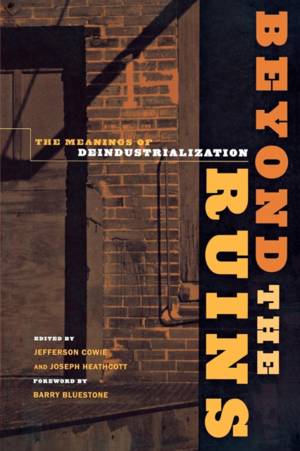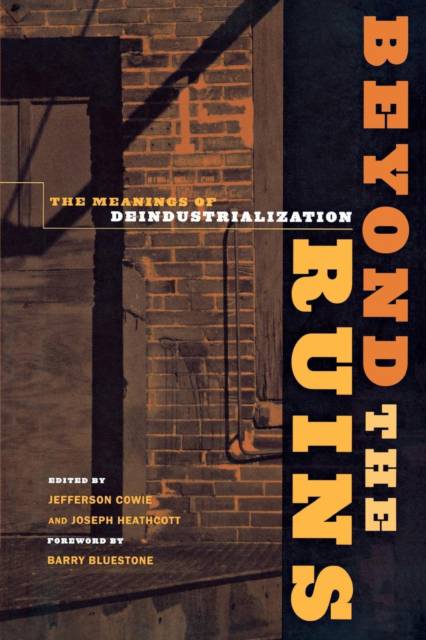
- Afhalen na 1 uur in een winkel met voorraad
- Gratis thuislevering in België vanaf € 30
- Ruim aanbod met 7 miljoen producten
- Afhalen na 1 uur in een winkel met voorraad
- Gratis thuislevering in België vanaf € 30
- Ruim aanbod met 7 miljoen producten
Omschrijving
The immediate impact of deindustrialization--the suffering inflicted upon workers, their families, and their communities--has been widely reported by scholars and journalists. In this important volume, the authors seek to move discussion of America's industrial decline beyond the immediate ramifications of plant shutdowns by placing it into a broader social, political, and economic context. Emphasizing a historical approach, the authors explore the multiple meanings of one of the major transformations of the twentieth century.The concept of deindustrialization entered the popular and scholarly lexicon in 1982 with the publication of The Deindustrialization of America, by Barry Bluestone and Bennett Harrison. Beyond the Ruins both builds upon and departs from the insights presented in that benchmark study. In this volume, the authors rethink the chronology, memory, geography, culture, and politics of industrial change in America.Taken together, these original essays argue that deindustrialization is not a story of a single emblematic place, such as Flint or Youngstown, or a specific time period, such as the 1980s. Nor is it limited to the abandoned factory buildings associated with heavy industry. Rather, deindustrialization is a complex process that is uneven in its causes, timing, and consequences. The essays in this volume examine this process through a wide range of topics, from worker narratives and media imagery, to suburban politics, environmental activism, and commemoration.
Specificaties
Betrokkenen
- Uitgeverij:
Inhoud
- Aantal bladzijden:
- 392
- Taal:
- Engels
- Reeks:
Eigenschappen
- Productcode (EAN):
- 9780801488719
- Verschijningsdatum:
- 15/10/2003
- Uitvoering:
- Paperback
- Formaat:
- Trade paperback (VS)
- Afmetingen:
- 148 mm x 234 mm
- Gewicht:
- 553 g

Alleen bij Standaard Boekhandel
Beoordelingen
We publiceren alleen reviews die voldoen aan de voorwaarden voor reviews. Bekijk onze voorwaarden voor reviews.







